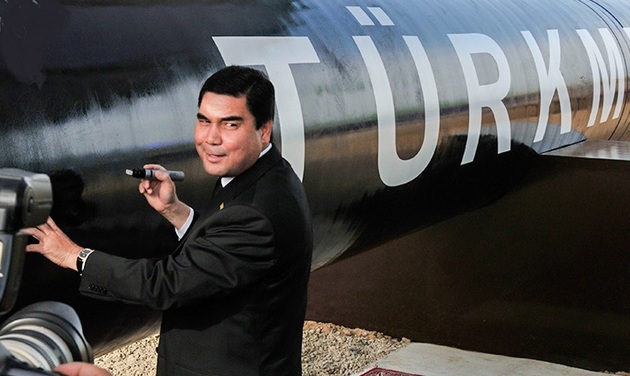Wrapping up a meeting with his Turkmen counterpart Rashid Meredov and the country’s deputy prime minister Serdar Berdymukhamedov in Xian on Monday, Chinese Foreign Minister Wang Yi said cooperation on natural gas was the “ballast stone” of the bilateral relationship. “China sees Turkmenistan as a long-term cooperative partner on natural gas, and is willing to formulate a comprehensive cooperation plan with the Turkmenistan side with a future-oriented perspective,” Wang said, according to a foreign ministry statement on Monday night, South China Morning Post writes.
The ministry said China and Turkmenistan agreed to “further consolidate and expand cooperation in natural gas, and create a full industry chain strategic partnership in the energy sector”. Wang also said China and Turkmenistan should also create new “engines” for cooperation beyond resources, such as trade, investment, connectivity and technology.
China aims to further cut energy imports from Australia as bilateral relations continue to sour. At least two of China’s small liquefied natural gas importers were instructed by government officials not to make new purchases from Australia over the next year, Bloomberg reported on Monday. Diversifying gas and oil imports to ensure energy security is also a cornerstone of the country’s latest five-year development plan, which runs until 2025.
Turkmenistan is the biggest supplier of natural gas to China, and the Turkmenistan-China gas pipeline, also known as the Central Asia-China gas pipeline, is a signature project of China’s Belt and Road Initiative, a vast global infrastructure development project. Since the pipeline opened in 2009, China has imported over 240 billion cubic metres of natural gas from Turkmenistan, supplies that account for over 70 per cent of China’s total imports, according to a report by the State Grid Corporation of China in December.
But the relationship has not always been smooth. In 2018, China and Turkmenistan were embroiled in a dispute over the price and supplies of the resource, prompting Turkmenistan to dramatically cut flows to China. But the levels gradually recovered the next year. Australia accounted for around 46 per cent of China’s LNG imports last year, according to industry data. “As the tensions with Australia escalate, China needs to beef up energy imports from Central Asia to ensure its overall supply,” said Sun Qi, an international relations specialist at the Shanghai Academy of Social Sciences. Meanwhile, in a phone call with his Turkmen counterpart Gurbanguly Berdymukhamedov on Thursday, Chinese President Xi Jinping called for joint efforts to lift the strategic partnership between the two sides to new levels by expanding cooperation in various sectors including aerospace and vaccines.






